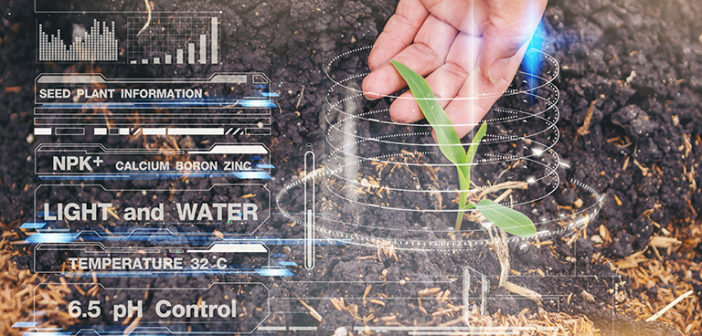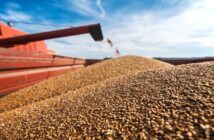Three new postgraduate courses that will each help agricultural and food production businesses to improve through analysis of appropriate data will commence at Harper Adams University in 2020.
Masters degrees in Data Science for the Global Agriculture and Food Industry; Agricultural Economics and Business Economics will welcome their first students next September.
“There is a huge skills gap in the UK workforce when it comes to data science and artificial intelligence,” explains Dr Ed Harris, a big data scientist and statistician who is leading the development of the data science course. “The Government’s Digital Skills strategy states that within the next 20 years, 90 per cent of all jobs will require some element of digital skills, with data science pin-pointed as a priority area for investment.
“The agri-food sector is seeing the early stages of a radical shift in demand for data scientists, thanks to applications in agri-tech, and smart farming and a large surge in demand for general skills using big data and open data across the sector through 2030. The time has never been better to launch a programme that seeks to address these dual challenges.”
The data science programme, which is currently going through development and validation process, will be the first of its kind in the UK and will be tailored to suit each of two types of student. The first are those with a background in agricultural or food science who wish to train in data science to allow them to take a smarter approach to business. The second are those who have a background in data science but wish to progress into the agri-food sector, where rapid development in technology is pushing demand for experts in data analysis.
Students will be supported by either agricultural or data science “boot camps” to address knowledge gaps and support their transition to the programme, explained Dr Harris.
The new Agricultural Economics postgraduate programmes will promote innovation in the application of science and technological advances within the global agri-food chain and the wider rural sector. Topics covered will include finance, accounting, econometrics, supply chain management, agribusiness management, risk management, environmental and natural resource economics, game theory and public policy analysis. The course will provide participants with an advanced understanding of global challenges and opportunities as well as principles of Agricultural Economics and practices of modern international agri-business management.
Business economics will tackle similar topics, but within a broader context than the agriculture-specific programme.
“By focusing on a variety of management and decision issues relevant to the agri-food sector in an ever changing international environment, students will develop and broaden their expertise, build critical skills and enhance their career prospects in the agri-business sector,” said Dr Dimitrios Paparas, Senior Lecturer in Economics.
All three subjects will offer interim awards at postgraduate certificate (PgC) and postgraduate diploma (PgD) levels. Masters programmes are eligible for postgraduate student loan funding to cover university fees.




